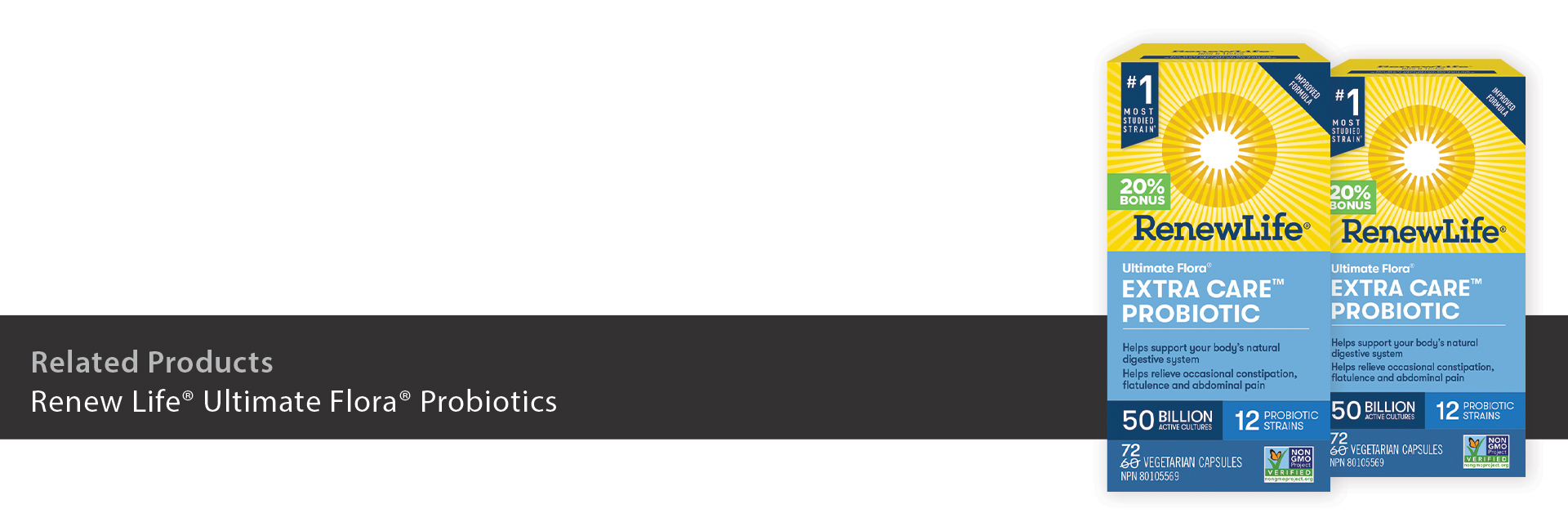

Gut Feelings and Good Digestion
I’ve had digestive issues for most of my life. It started at a very young age and was triggered by childhood trauma. It’s been a lifelong challenge for me so it’s no wonder that I ended up as a Registered Holistic Nutritionist and educate for a brand that specializes in digestive care.
The gastrointestinal tract is the only internal organ to have evolved with its own nervous system and it can operate independently from the brain and can function without it. When you get “gut feelings”, have a “gut reaction” or experience butterflies in your stomach, you’re likely getting signals from your gut brain.[1]
Your gut microbiome is a key to good health. The microbiome is the collection of all microbes, such as bacteria, fungi, viruses, and their genes, that naturally live on and in our bodies.[2] The bacteria in your gut microbiome affects your body from birth to death. These bacteria:
- Produce some vitamins that we do not have the genes to make.
- Break down our food to extract nutrients we need to survive.
- Synthesize key compounds such as b-vitamins and short chain fatty acids
- Teach our immune systems how to distinguish dangerous invaders from innocuous compounds.
- Produce helpful anti-inflammatory compounds that fight off other disease-causing microbes.
- Help improve motility.
- Signal components of the gut-brain axis.[3],[4],[5]
Supporting your microbiome includes a healthy diet, exercise, getting good quality sleep and may include supplementing with probiotics.
Let’s start with the diet. There are certain foods which have been shown to help support healthy gut bacteria.
- Omega-3 fats: can increase good bacteria in the gut.
- Fermented foods: such as yogurt, kefir, and sauerkraut contain healthy microbes.
- High-fibre foods like nuts, seeds, fruits and vegetables all contain prebiotic fibers that are good for your gut bacteria.
- Polyphenol-rich foods such as cocoa, green tea, and olive oil all contain polyphenols which increase healthy gut bacteria.
Exercise
Most bacteria in your gut support body functions and our bodies support the health and growth of these microorganisms. They produce vitamins, fatty acids, and amino acids that are used for immune functioning, digestion, mood regulation, and more. Regular exercise accelerates the process, increasing the different kinds of microbial species in the gut, and encourages bacteria to flourish.[6],[7]
Sleep
The intestinal microbiome produces and releases many of the same sleep-influencing neurotransmitters such as melatonin, dopamine, serotonin, and GABA that are also produced by the brain. Like sleep, and so much else about the body, it appears our microbiome is regulated by circadian rhythms. New research shows that when circadian rhythms are disrupted, the health and functioning of the microbiome suffers as well.[8]
Consider a Probiotic Supplement
Trust your gut to Renew Life® 50 Billion EXTRA CARE™ Probiotic. Probiotics are friendly bacteria that primarily live in your digestive tract and support the health of the digestive system. Renew Life’s Extra Care™ Probiotic formula contains 50 billion live cultures from 12 probiotic strains in a targeted-release vegetarian capsule. It supports digestive health and helps reduce the frequency of constipation, flatulence and irregularity. It’s shelf-stable with quality, purity and potency guaranteed until date of expiry and backed by a 60-day money back guarantee so you can try it with confidence.
By Caroline Farquhar, RHN, EMP, BA, National Training Manager for Renew Life®
References:
[1] Spencer NJ, Hu H. Enteric nervous system: sensory transduction, neural circuits and gastrointestinal motility. Nat Rev Gastroenterol Hepatol. 2020 Jun;17(6):338-351. doi: 10.1038/s41575-020-0271-2. Epub 2020 Mar 9. PMID: 32152479; PMCID: PMC7474470
[2] National Institute of Environmental Health Sciences staff. (2022). Microbiome. [Online]. National Institute of Environmental Health Sciences. Last Updated: 5 April 2022. Available at: https://www.niehs.nih.gov/health/topics/science/microbiome/index.cfm [Accessed 9 February 2023].
[3] NIH Human Microbiome Project Staff. (2017). About the Human Microbiome. Available: https://www.hmpdacc.org/overview/. Last accessed 06 Feb 23.
[4] Bercik P, Collins SM, Verdu EF. Microbes and the gut-brain axis. Neurogastroenterol Motil. 2012 May;24(5):405-13. doi: 10.1111/j.1365-2982.2012.01906.x. Epub 2012 Mar 8. PMID: 22404222.
[5] Robertson, R. (2017). Why the Gut Microbiome Is Crucial for Your Health. Available: https://www.healthline.com/nutrition/gut-microbiome-and-health. Last accessed 06 Feb 23.
[6] Chai, C. (2022). Can Exercise Boost My Gut Health?. [Online]. Everyday Health. Last Updated: 2 Jun 2022. Available at: https://www.everydayhealth.com/fitness/can-exercise-boost-my-gut-health/ [Accessed 23 January 2023].
[7] Clauss, M. et al. (2021). Interplay Between Exercise and Gut Microbiome in the Context of Human Health and Performance. Frontiers. Last Updated: 10 Jun 2021. Available at: https://www.frontiersin.org/articles/10.3389/fnut.2021.637010/full#h11 [Accessed 23 January 2023].
[8] Breus, M. (2022). The Latest on Sleep and Gut Health. [Online]. The Sleep Doctor. Last Updated: 13 December 2022. Available at: https://thesleepdoctor.com/physical-health/can-sleep-affect-digestion/ [Accessed 23 January 2023].

